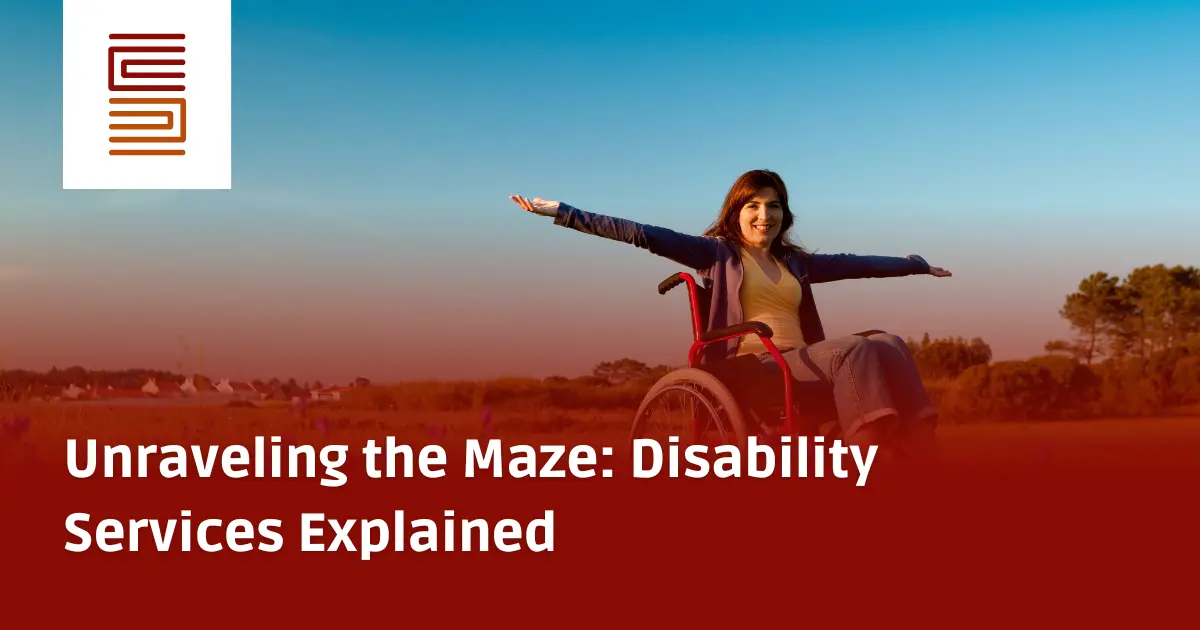Unraveling the Maze: Disability Services Explained
Living with a disability can present unique challenges. Securing the right support services can significantly improve quality of life, but navigating the system can feel overwhelming. This article aims to demystify disability services, empowering you to access the care you deserve.
Understanding the Landscape of Disability Services
Disability services encompass a wide range of programs and resources designed to empower individuals with disabilities to live independently and participate fully in their communities. These services can be categorized into several key areas:
- Medical Care: Ensuring access to specialized healthcare professionals and treatments is crucial for individuals with complex medical needs.
- Therapy Services: Speech, occupational, and physical therapy can help individuals improve their functional skills and independence. These services can address a wide range of challenges, such as mobility limitations, communication difficulties, and sensory processing issues.
- Vocational Rehabilitation: Programs that assist with job training, career counseling, and workplace accommodations can empower individuals with disabilities to achieve their career goals. Vocational rehabilitation specialists can help identify suitable career paths, develop resumes and interview skills, and connect individuals with employers who value diverse workforces.
- Assistive Technology: Providing tools and equipment that can increase accessibility and independence can significantly improve daily living. Examples of assistive technology include screen readers for individuals with visual impairments, motorized wheelchairs for those with mobility limitations, and communication devices for those with speech difficulties.
- Transportation: Accessible transportation services can ensure individuals with disabilities can reach appointments, participate in activities, and maintain social connections. These services can include paratransit systems, ride-sharing programs with accessible vehicles, or modified personal vehicles.
- Community Integration: Programs that promote inclusion and social interaction are essential for combating isolation and fostering a sense of belonging. This may involve social clubs, recreational activities, or supported employment opportunities that allow individuals to connect with others and build meaningful relationships.
The Importance of Individualized Support
A one-size-fits-all approach doesn’t work when it comes to disability services. Each individual’s needs are unique, and a comprehensive support plan that addresses all aspects of well-being is crucial. This might include a combination of medical care, therapy services, assistive technology, and support with daily living activities. For instance, a child with autism may benefit from speech therapy to improve communication skills, occupational therapy to develop fine motor skills, and social skills groups to foster peer interaction.
Challenges in Accessing Services
Navigating the intricate web of disability services can be challenging. Here are some common hurdles:
- Limited Resources: Funding for disability services can be scarce, leading to waiting lists and limitations on access. In some cases, individuals may need to fight for the services they deserve through appeals processes or legal advocacy.
- Complex Eligibility Requirements: Meeting eligibility criteria can be confusing and require extensive paperwork. The specific requirements can vary depending on the service, disability type, and location.
- Lack of Awareness: Many people are unaware of the full range of services available to them. This highlights the importance of outreach programs and community education initiatives.
- Geographic Barriers: Access to services may be limited in rural areas. Telehealth services and innovative transportation solutions can help bridge this gap.
Finding Your Way: Resources and Strategies
Despite the challenges, numerous resources can assist you in obtaining the services you need. Here’s a starting point:
- Disability Rights Organizations: These organizations advocate for the rights of individuals with disabilities and can provide guidance on navigating the system. They can offer legal assistance, connect you with relevant resources, and help you understand your rights. (Link to relevant resource on NMSN website)
- State Agencies: The state agency responsible for disability services can provide information about available programs and resources in your area. These agencies can also assist with the application process and answer questions about eligibility requirements. (Link to relevant resource on the state government website)
- Healthcare Providers: Your doctor or other healthcare providers may be able to refer you to appropriate services. They can also provide documentation to support your eligibility for specific services.
- Non-Profit Organizations: Many non-profit organizations offer specialized services for individuals with disabilities. These organizations may focus on specific disabilities, age groups, or geographic regions. (Link to relevant resource on NMSN website)
The Power of Advocacy:
Don’t be afraid to advocate for yourself or your loved one. Gather information, ask questions, and don’t give up until you receive the support you deserve. There are many resources available to help you navigate the system and fight for your rights.
Building a Brighter Future
By working together, we can create a world where everyone has access to the services they need to live fulfilling lives. Organizations like the New Mexico Support Network (NMSN) play a vital role in this mission by providing comprehensive support services,
References:
the-importance-of-supporting-services-that-empower-people-with disabilities




